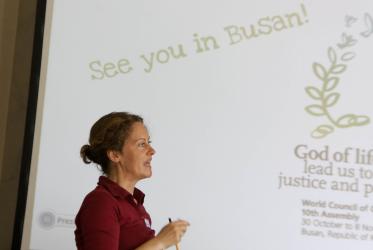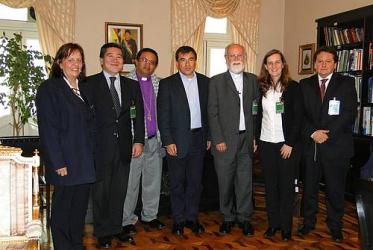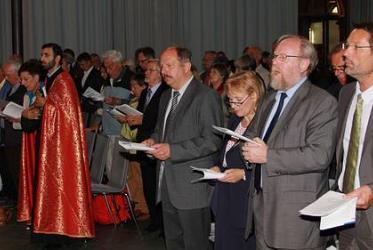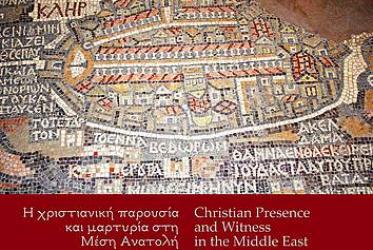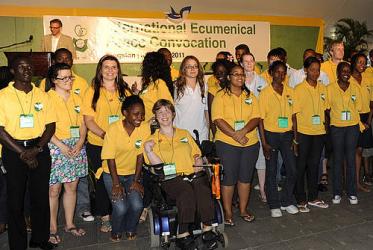Displaying 101 - 120 of 121
24 June 2013
Statement on global economy delivered to Bolivia
15 January 2013
New milestone charted by International Review of Mission
22 November 2012
WCC adopts statements on contemporary public issues
12 September 2012
Echos for Peace: ecumenical youth launches a new book
01 November 2011
WCC supports Ecuador’s Yasuni project
13 October 2011
Time for Creation 2011: A call to pray, reflect and act
14 September 2011
WCC Executive Committee in Ethiopia exposed to famine situation
13 September 2011
WCC Central Committee focuses on peace and justice
25 February 2011
Central Committee discusses world Christianity’s changing context
17 February 2011
WCC fills six key staff leadership positions
18 April 2007
